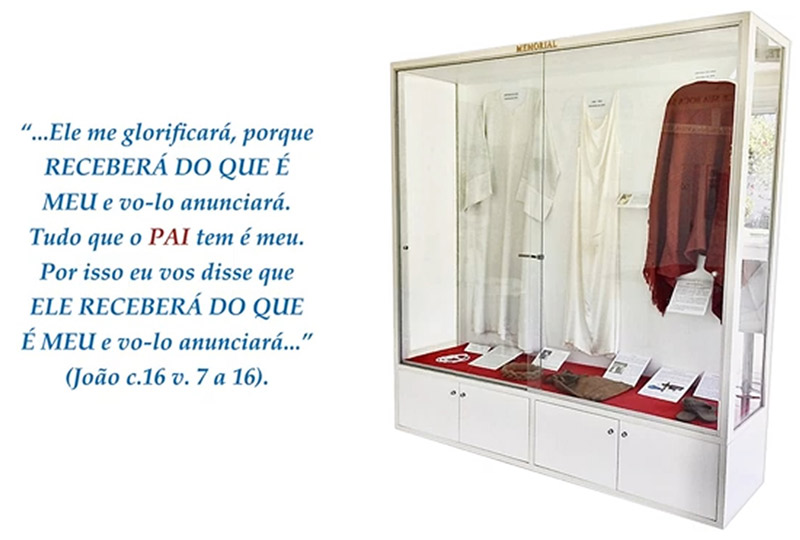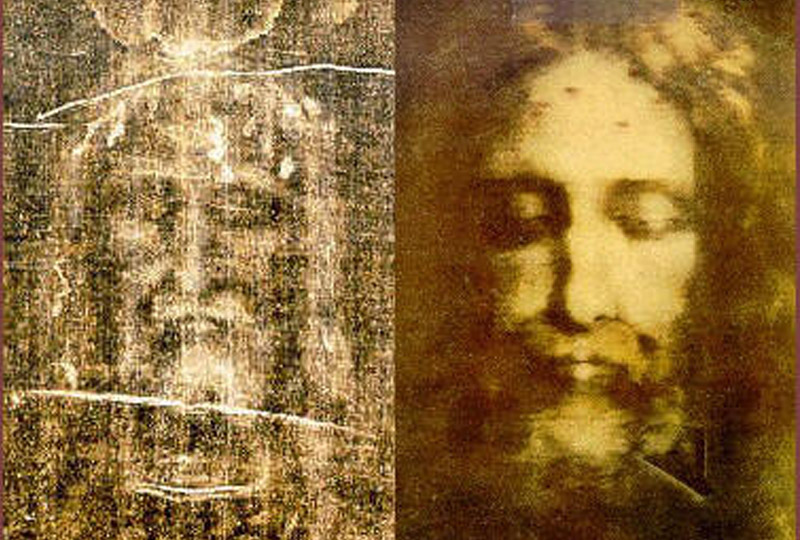In the Bible there are no references regarding the life of Christ from the age 13 to 30, whom he lived with or where he went. Until being baptized by John the Baptist, purifying in the fast and beginning the public life assuming the name Jesus, Christ used the name Immanuel, fulfilling what had been predicted by Isaiah (c.7 v.14): “Therefore the LORD himself will give you a sign. Look, the young woman* is with child and shall bear a son, and shall name him Immanuel. He shall eat curds* and honey by the time he knows how to refuse the evil and choose the good”. No matter he filled this gap of time peregrinating in the Palestine, in India, in Africa, in Tibet or wherever else. The reality is that he, with the name Immanuel, went on experiencing the world sins.
Immanuel means “God with us”. In other words, although immersed in the mud, in the world filth, together with the sinners, he was impelled by God to assimilate that even the greatest souls, while not in complete control of their cage vehicle (the body) given by the Eternal FATHER and by mother nature, are at the mercy of the most terrible vices, just as are capable of the greatest virtues. Because to know the virtue it is necessary to know the sin, overcome the sin and conquer the world; only then one can know the integral value of virtue (“In the world you face persecution. But take courage: I have conquered the world!” – John c.16 v.33).
Well, had Christ not experienced the world sins with the name Immanuel, had he always been armored, unscathed, pure, protected, there would be no reason into saying: “Take courage, I have conquered the world”. To say “I have conquered the world”, one must have been at the mercy of the darkness, vulnerable to the profane power that rules the world. Behold the irrefutable proof that Christ, guided by the ALMIGHTY, with the name Immanuel, experienced the world sins, the miseries, the weaknesses of the flesh. Christ had to experience the sweet and the sour, the good and bad things, until achieving discernment. He became pure, but not naïve. He was endowed with empirical knowledge, which enables the clear and objective perception of life reality, turning him ready to fulfill his mission on Earth. This bestows him the clairvoyance to testify that even those people considered the most dirty, vulnerable, despicable, reproachable at the eyes of the “chaste, immaculate” society (see Mary Magdalene – John c.8 v.1 – 9) may be blessed with the discovery of GOD. And it is in this discovery, by glimpsing the Eternal, where everything changes in the life of a human being.
The Jesuit Pharisees who think to be Christians may be shocked, scandalized, horrified to imagine that Christ lived in flesh the world sins, but doubting this is to doubt the Scriptures, denying this is to deny the truth of life, the truth of the Bible. If the Christians believe that Christ was GOD’s Emissary, fulfilling the prophecy of Isaiah and other prophets, therefore they are induced by logic coherence to coadunate and recognize this prophecy (Matthew c.1 v.22 and 23). Inri Cristo said that those who doubt the obvious are following an imaginary, folkloric Christ. Assuming the status of “evanjackasses”, mounts of the evil, they will have to carry on their back the weight of the false prophets successors of Paul, the first false prophet, self-confessed liar of the Christian age (“But if through my falsehood GOD’s truthfulness abounds to His glory, why am I still being condemned as a sinner?” – Romans c.3 v.7). GOD does not need anyone lying to glorify Him (“For outside the Kingdom of GOD are idolaters and everyone who loves and practices falsehood” – Revelation c.22 v.15). Therefore, it is necessary to let this subject very clear, explicit, in order to dispel the doubts, the gaps that exist for centuries concerning the life and the coming of the Messiah. Coherence, logic and truth are inseparable. The sensible meditate and assimilate.
*Some versions of the Bible translate the original Hebraic terminology “almah” by “Young lady”, others translate it into “virgin”, just as butter is referred to as curdled milk to allude to the sour taste, opposing the sweetness of honey.











